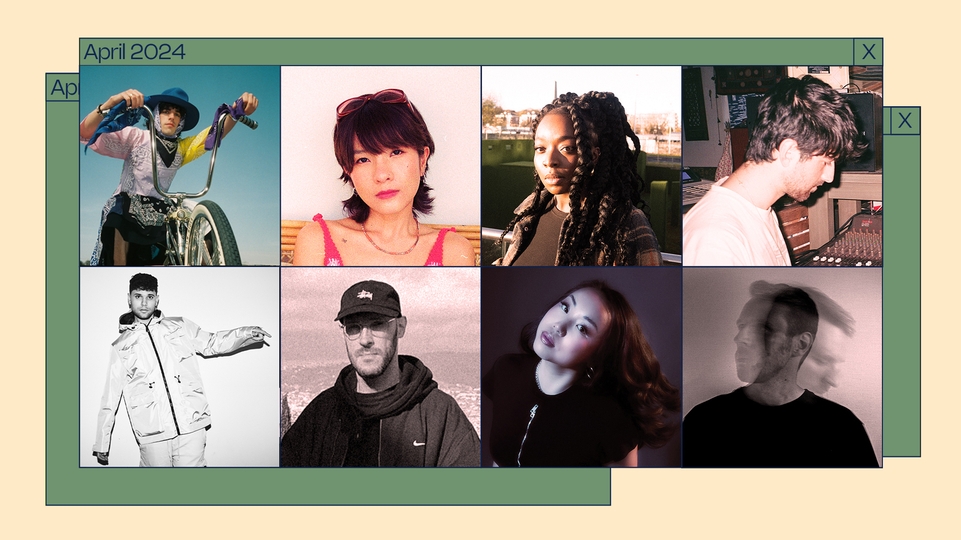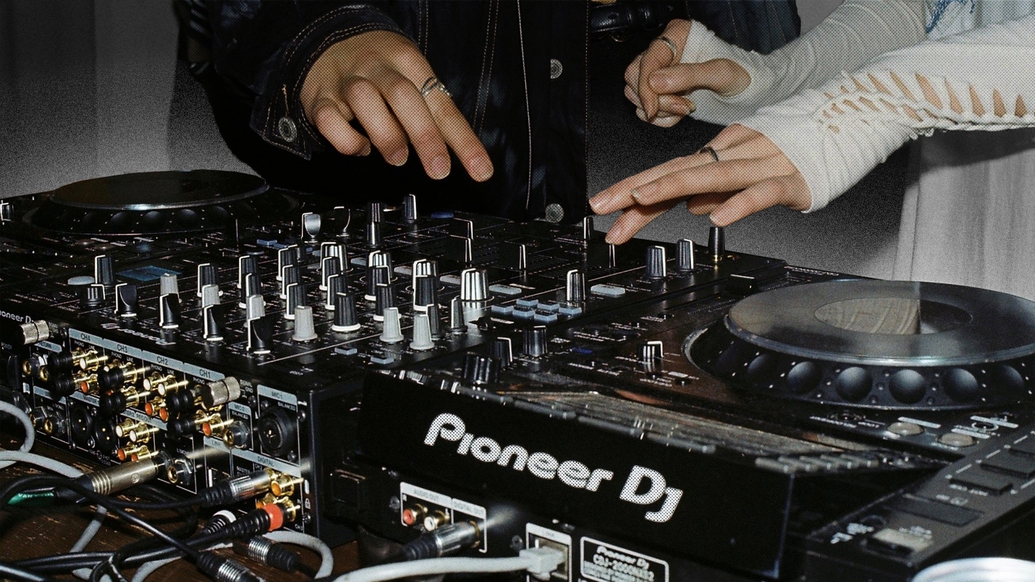
Open decks: how to make DJing more accessible for everyone
Across the UK, open decks events are making DJing more accessible for people of all skill levels. Here, Joseph Francis speaks to organisers and community members about how creating safe spaces to practise and learn can help boost confidence, encourage members of marginalised groups, unearth new talent, and even change the narrative around what makes a good DJ
Every first Thursday of the month, Lion Vibes record store in Brixton, South London hosts an open decks night. It’s a lowkey thing; punters rock up with a few drinks to enjoy some reggae. Those interested in DJing sign up on an A4 sheet at the front and wait for their 15 minutes on the turntable. No mixing needed — just selecting and dancing.
Brixton Jamm up the road has a different take. The club’s open decks boast a full setup of two CDJs and a pair of turntables and you can mix any dance music you like for 40 minutes. But they arguably lack the community spirit of Lion Vibes, something all the other open decks we speak to for this feature see as one of the main reasons for throwing these events — along with giving people a platform to get into DJing and maybe even kickstart a career.
“Some people come [to our open decks] and just use it to have a practice on someone else’s decks, and while that may be a small win for them, we have some events where there are loads of people and there’s a vibe,” says Chris Dexta, who co-owns the Planet Wax record store in nearby New Cross. “This gives us an opportunity to gauge whether anyone liked the DJ and then we can keep our eyes on them for other events — like a scouting type of thing. Because if they don’t get [scouted] they won’t go anywhere and then we’ll have to listen to more David Guetta,” he laughs. He tells us about a dub reggae duo who came in recently and were such a hit that Planet Wax has now given them a monthly residency as Lion Call.
We hear many similar stories, of those who have come through open decks events and are now getting gigs around their respective cities. But taking that first step towards DJing is not the same for everyone. Despite advances in technology, DJ equipment can still be prohibitively expensive for many; imposter syndrome and gender stereotypes can make people think DJing isn’t meant for them; and for those who do take the leap, it takes a lot of confidence to perform and share the music you love with a group of strangers.
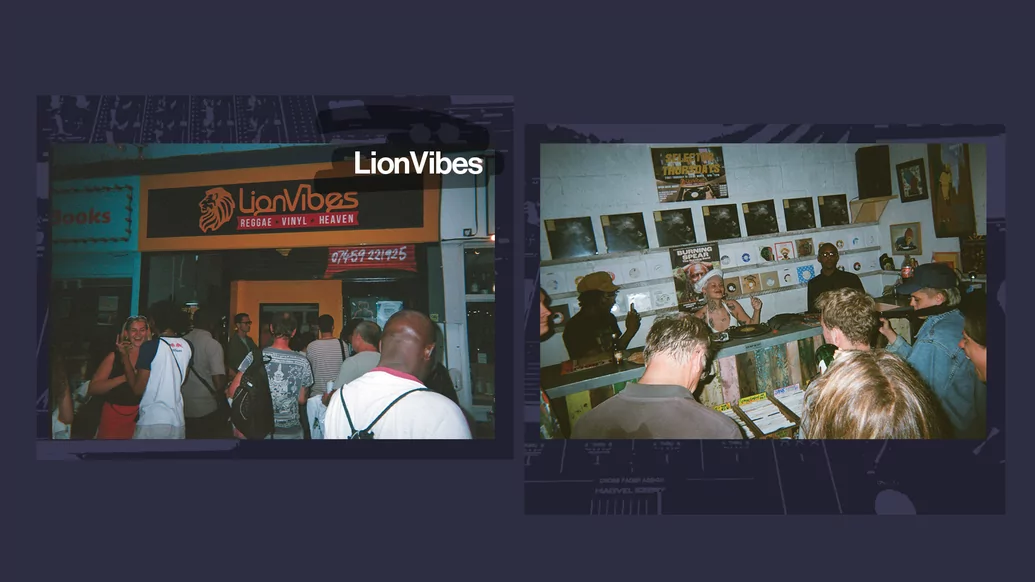
“[The open decks] taught me it’s okay to make mistakes, you just need to style them out and make sure everyone is having a great time!” – DAFTWERK
“Music is an intimate thing regardless of the mixing side of things,” say Katie Matthews and Hannah Beres, co-founders of the not-for-profit community space and queer collective, Gut Level, in Sheffield. “It takes courage to share something that you’re into: it’s so personal and subjective.” Gut Level has been running its monthly open decks, Liccle Mix, since February, with a focus on giving people a platform where they feel safe to share music. “On the first ever open decks, we had someone just playing different YouTube songs because they had no experience using the DJ equipment,” they explain.
One recent attendee at Liccle Mix, DAFTWERK, tells us how she’s usually hit with crippling anxiety when she DJs for an audience. “My body feels like it’s going to shut down,” she says. Gut Level’s open decks helped her to feel more confident. “Even when I messed up, people kept cheering and dancing,” she explains. “[The open decks] taught me it’s okay to make mistakes, you just need to style them out and make sure everyone is having a great time!”
Liccle Mix is open to everyone, but Gut Level tries to prioritise marginalised genders and LGBTQ+ people when choosing the DJs for the night. The space also hosts regular DJ workshops run by two collectives, FLAW and Working Them’s Club, which are exclusive to those groups. One past Gut Level member, Ruth Smart, was so enthused by what she experienced at the workshops that it inspired her to start an open decks down in Brighton. “Before Gut Level, there weren’t really any super-inviting places to learn how to DJ in Sheffield,” she explains. “I wanted to emulate that space where you can try out the equipment and it’s really low stakes.”
Her friend, Emma Harrison, had a similar desire to create a welcoming environment where people could learn. “I had a lot of experiences of really trying to elbow my way on to male-dominated spaces and feeling really intimidated. Open decks is our way of making [DJing] accessible and inviting rather than threatening,” they say. Following a couple of pub meetings and a first open decks night, the two formed the feminist DJ collective, BBG, alongside a core group of 10 others. BBG now numbers around 30 people, serving as a platform for women, non-binary, trans, queer and gender non-conforming people to try their hand at DJing.
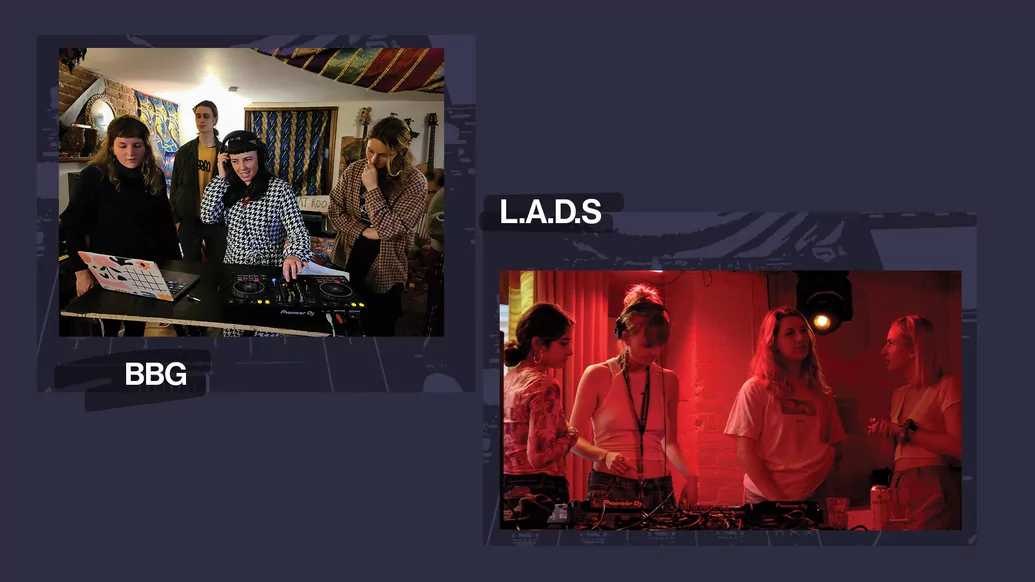
BBG’s open decks event is seen as something to work towards — “a reason to practise,” as Smart puts it. For those who don’t know how to DJ, BBG has run workshops called BBG Basics. One of the alumni, vlicha, started out at BBG Basics and now has sets coming up in London and in Brighton. They tell us how the workshop “broke everything down and demystified it, and made me realise just how kind of easy [DJing] is; it’s not this exclusive (boys') club I won't have the skill to access for years”.
Workshops are arguably a better environment for practising to DJ than open decks, since they don't come with the pressure of having to please an audience. You can take risks, rewind a track and start again if something goes wrong. “When you’re trying to achieve equality with something, you don't want it to be a pressurised environment where you've got to perform for others; it puts people off,” says Becky Woodcock, a professional DJ who helps out at L.A.D.S (Ladies Open Decks and Social) at Cobalt Studios in Newcastle. As a student, Woodcock remembers being put off buying a controller because of the price and because she was embarrassed about being the only woman she knew doing it. “I’d have loved to have had something like L.A.D.S, where I could’ve turned up and had a practice to see if I actually enjoyed it.”
L.A.D.S’ interpretation of an open decks is what others might call a workshop. “It’s a cacophony of noise,” explains the director of the community and arts space, Kate Hodgkinson. “We have four or five pairs of CDJs and a pair of [Technics] 1210s out, and there’ll be small clusters of people around each one of those. It’s a very heartwarming sight, all these people stood round decks, helping each other.”
Both Hodgkinson and Woodcock are keen to keep the format as is, since it allows for more conversation and networking, which Woodcock argues is half the reason many attend the event. Open decks offer people a more sober space to chat and connect with like-minded individuals. “They are less ageist in that they finish earlier and you're not expected to be drinking,” Woodcock adds, “but it still gives you somewhere to go and enjoy music.”
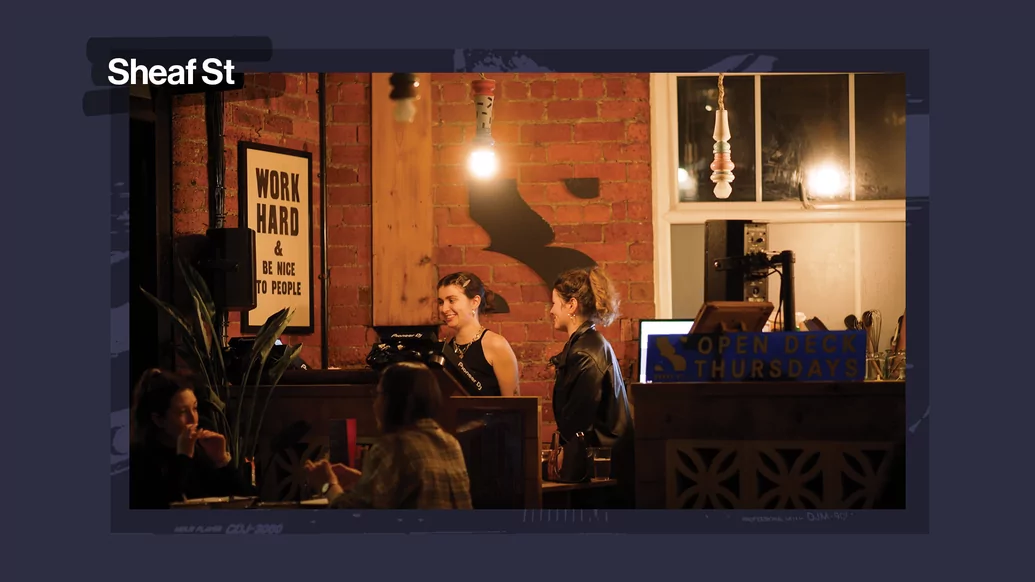
“We have four or five pairs of CDJs and a pair of [Technics] 1210s out, and there’ll be small clusters of people around each one of those. It’s a very heartwarming sight, all these people stood round decks, helping each other” – Kate Hodgkinson
In Leeds, Sheaf St. is an example of somewhere DJs go as much for the atmosphere as they do the chance to practise. One regular DJ, ChaRita, remembers Sheaf St. catching her attention because it explicitly encouraged women, people of colour and LGBTQ+ people to sign up to its open decks. The sign-up form itself is exemplary, giving a sense that every level and style of DJ is welcome. It distinguishes between two important sub-categories of beginner: ‘have a home setup’ and ‘have never touched a controller/CDJ’.
Beginners can opt in for some tuition prior to their set, and once complete, the form recommends one of three rooms to perform in based on the sort of music you’ll be playing. If experimental and downtempo stuff is your thing then the cafe might be the best fit; if you want to hammer hard techno for an hour then the event space is probably the one; and a summery set of disco might work well out in the Yarden.
ChaRita, who since starting out at Sheaf St. has played all over Leeds and warmed up for popular names like Prosumer, recently used the open decks as an opportunity to hear how one of her own songs would land on a dancefloor. “I just finished a song and I have some DJ gigs lined up so I felt like I needed to try it out before I play it in a club. I was a bit worried because there were about 10 people in the room that were just watching, but it sounded really good in the end!”
When DJing alone at home or in a studio, it’s easy to become fixated on the technical side of things — like beat-matching and blending — but there are many different ways to DJ. Rufus Stewart, who manages Sheaf St.’s open decks, is keen to challenge some of the dated narratives around DJing. “You might be able to blend songs perfectly together, but people want to hear a human playing,” he says. “There are millions of computer tools that can make better mixes than we can, so being a human is a lot more important than being the best technical DJ.”
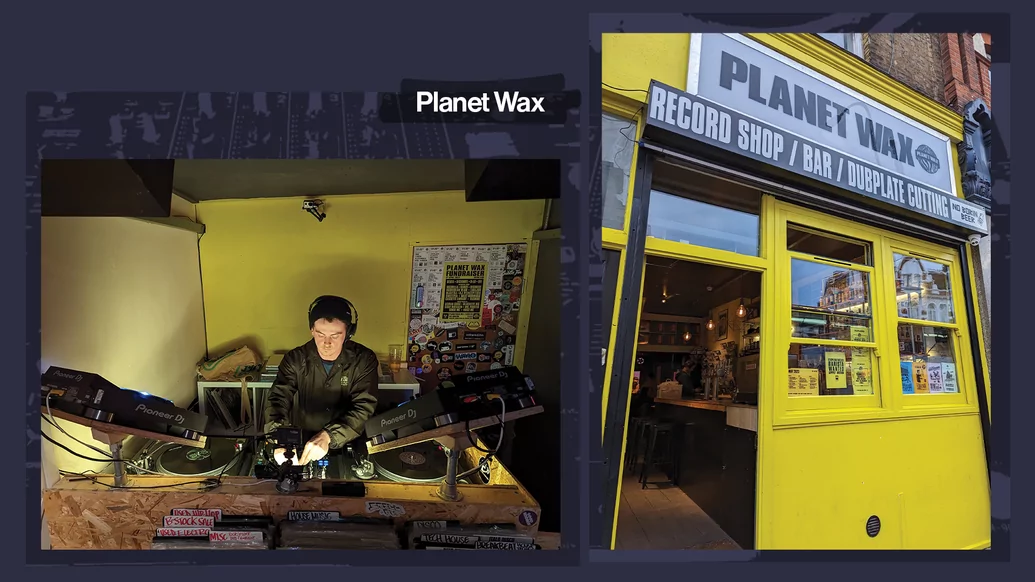
Above the booth, facing the DJ in Sheaf St.’s Yarden reads a peculiar phrase: ‘You’re not God, you’re a DJ’. Perhaps designed to keep performers from getting big-headed as they loom over the dancers below, it could also be read in a reassuring way — you don’t need to be perfect. At its most basic, DJing is just choosing songs for others to enjoy. There’s often an idea that you have to be the best to play out, which stops many from starting in the first place. “The whole point of DJing is to play music for others. You're there to supplement other people’s experiences and give them a really good night. It’s not really about you,” argues Stewart.
Back at Lion Vibes, a new face has stepped up to the platter. They’re unfamiliar with the setup, but it doesn’t matter because when they drop the needle on the first record, the crowd goes wild; calls for a rewind fill the shop. Rewind? The DJ doesn’t understand. Someone shows them how to wheel the turntable back and they follow. When Dennis Brown’s ‘Promised Land’ eventually slithers back up to speed again, the tune rattles through the windows, blasts through the store’s yellow door, and gets everyone moving together.
